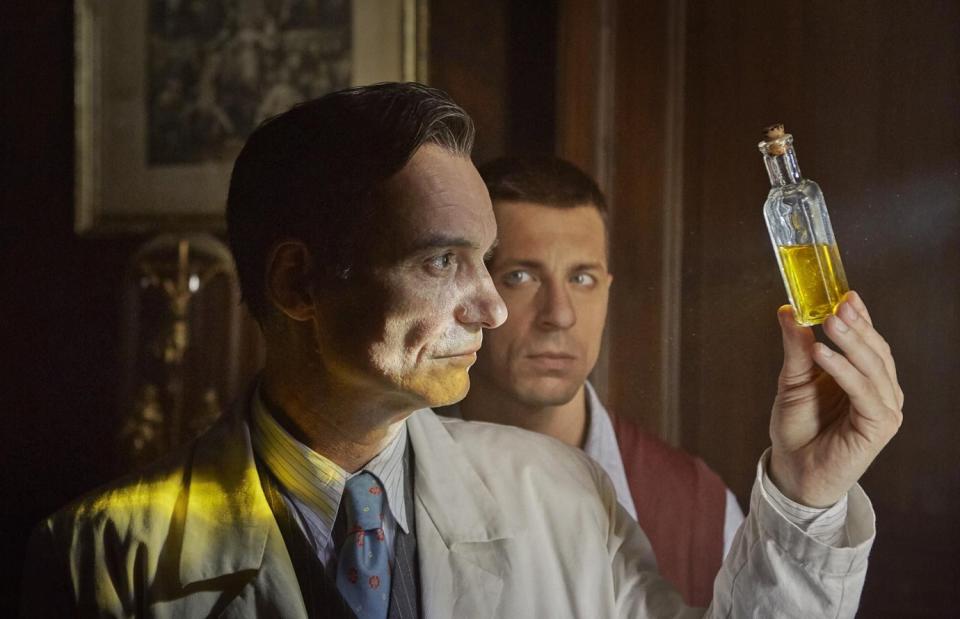‘Charlatan’ Review: Agnieszka Holland’s Biopic About a Dubious Communist Healer Is Fascinating

Click here to read the full article.
A year after “Mr. Jones,” Polish director Agnieszka Holland has made . “Charlatan” introduces us to the strange case of Jan Mikolášek (played by “In the Shadow” star Ivan Trojan), an herbalist who defiantly refused to nationalize his practice in post-war Czechoslovakia, much to the consternation of the country’s volatile Communist party.
But don’t let the white medical coat fool you: By his own admission, Mikolášek was no doctor. On the contrary, he was a pro bono faith healer on a biblical scale, supposedly capable of fixing people with the mere touch of his hands and diagnosing complex maladies just by eyeballing their urine. He was also a conformist who treated Hitler’s chief of staff, a closeted homosexual at a time when being gay was a criminal offense, and a man who coveted his power above all things because he regarded helplessness as a living hell. His legacy straddles the equator that separates truth from lies, healing from hurting. The fascinating but misshapen historical drama that Holland makes of it explores the nature of survival in a landscape where political trials and personal tribulations sometimes required contradictory treatments.
More from IndieWire
But about that title: The word “Charlatan” tends to cast a long shadow across this movie from start to finish, and its definition often seems to be in flux. Unbound by the hagiographical certainty of mainstream American biopics, Holland is free to leave the most intriguing aspects of Mikolášek’s life up to interpretation. Case in point: Was he an altruistic snake oil salesman, or a man who made the most of a divine gift? Marek Epstein’s screenplay offers evidence for both sides (before playing itself into a dramatically inert stalemate towards the end).
On the one hand, the lean and strident Mikolášek is shown to have an uncanny ability for seeing things in strangers’ piss; in one scene, he’s able to match several different Nazis to their ailments just by looking at their urine, and even (accurately) conclude that one of them has died in the hours since leaving their simple. And there’s no doubt that Mikolášek himself believes in his diagnostic power, as overlong flashbacks (in which Trojan’s own son plays a younger version of his character) show us that he received his knowledge from a pious local woman with the seriousness of a med school student. A devout but tortured Christian, Mikolášek can’t stand it when patients kneel before him.
On the other hand, it’s hard for a modern viewer to trust anyone who prescribes sunlight to a boy whose legs have been deformed by polio, offers herbal douches to a woman who suffers from infertility, and is prone to saying things to sick people like “believe, and you’ll be fine.” Maybe he knows that he can’t help some of these patients, and he just can’t stand the idea of his own powerlessness. Not when thousands of desperate people line up outside of his dilapidated rural mansion every day to receive doses of medicine from Mikolášek’s handsome right-hand man, František (Juraj Loj).
Mikolášek was once in a situation where he didn’t have a choice, and it’s haunted him ever since. Another flashback — this one much grainier and visceral than the flowery bloom of the ones that follow — returns to the moment when Mikolášek was forced to participate in a firing squad and (at gunpoint himself) shoot one of his fellow soldiers. The residual impact of that episode is as clear as a urine sample, even in a film too haltingly paced and temporally erratic to explore how time heals everything except wounds (to borrow a notion from Chris Marker). That failing mutes the drama of this story, and it dulls The Passion of Jan Mikolášek as the healer is arrested and stands trial for the rest of Holland’s film, but it still manages to illuminate the pathology of a Communist regime. “The worst punishment is having a choice,” Mikolášek sighs from inside his prison cell, reflecting on a life that often required him to put his moral compass in his pocket if he wanted to keep helping people.
“Charlatan” is all the more intriguing for how it refuses to simplify that compromise, or make it seem like a noble act. Mikolášek is a manipulative and distant character who’s willing to do whatever it takes to help people survive, himself most of all. He eludes judgement even when he’s on trial for being “an ulcer in our Communist community,” and insists — perhaps not unfairly — that “you’ll never understand” him. His relationship with František is tender at times, but also built atop a twisted power dynamic that taints the whole affair. Mikolášek is cruel to his sister, even though he’s responsible for saving her gangrenous leg, and he’s not above throwing certain people under the bus.
And then there’s the scene where he brutally murders a sackful of kittens. Really. Most filmmakers would be too afraid to come back from that; Holland takes it as a challenge, though it’s one she can’t quite meet. “Charlatan” becomes entangled in its conflicting mesh of traits and time periods, but the film is only able to become more than the sum of its frustrating parts because it embraces those complications in the first place.
Grade: B-
“Charlatan” premiered in the Special Gala section of the 2020 Berlin International Film Festival. It is currently seeking U.S. distribution.
Best of IndieWire
Sign up for Indiewire's Newsletter. For the latest news, follow us on Facebook, Twitter, and Instagram.

